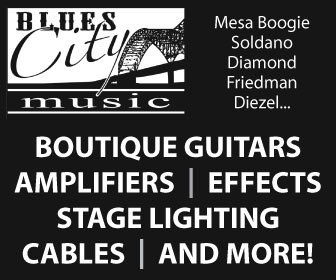Spiraling
Talking Up Their "Challenging" New EP
Following-up on the success of their latest LP, "Transmitter," Spiraling has released a new EP, "Challenging Stage," featuring four tracks to hold over fans waiting for the next full-length album to drop.
Spiraling has helped build their reputation as a live act at gigs with headliners including the Violent Femmes and They Might Be Giants, and have been highlighted at several major music festivals. Since the band was last interviewed by Chorus and Verse, they have continued a steady performance schedule, including a tour of the Midwest with OK Go. "Challenging Stage" was released at New Jersey's Starland Ballroom this past August, and the band performs regularly at major venues in New York City.
Their next project will be a track on the upcoming Cars tribute album, due to be released by Not Lame Records in November.
The four tracks on "Challenging Stage," "A Face For Radio," "Ah, Sugar," "Texas Is The Reason," and "You Can't Get There," wonderfully showcase the band's live sound, as well as give an exciting preview of where their music is heading. "Ah, Sugar" is quirky and immediately catchy, while "You Can't Get There" deserves a spot in the band's encore and serves its purpose of ending the EP while leaving the listener waiting, and wanting, for more.
Tom Brislin's undeniably cool keyboard playing allows his instrument to flow effortlessly between hook and groove, supporting or filling the spaces around the rest of the band's talented quartet; Bob Hart on bass, Marty O'Kane on guitar and Paul Wells on drums.
Chorus and Verse interviewed the entire band about the work behind the new EP and some of their recent successes in having their music played on radio and television.
Why did you decide to follow-up your last full-length CD with an EP, "Challenging Stage"? Are the four songs on the album tracks that were recently written, or are they older songs that weren't included on pervious releases?
Tom Brislin: We began demoing new tracks in between the tour dates supporting our "Transmitter" CD. I generally think in terms of full-length albums, but I see "Challenging Stage" as an interlude between where the band is now and and what the next full-length album will be.
The tracks that comprise "Challenging Stage" were all written after we released "Transmitter," "Ah, Sugar" being the youngest song of the bunch.
Where was the EP recorded? Was it done all in one session or over several days? When the band records, do you like to record your tracks separately and then bring everything together in the mix, or are you all in the same studio at the same time, running tape live as a group?
Tom Brislin: One of the goals we had with the new EP was to capture how the band sounds live. We recorded the principal tracks at Kampo Studios in New York City and played live as a group. I also recorded some things at home, which is where I like to do vocals and things like that.
I wanted to use all authentic vintage keyboards on the CD, so I drove down to Virginia to record some Mellotron tracks, which is a very cool and rare keyboard that I wanted to get on this new record. We mixed the CD with my friend Alap Momin, who is involved with a lot of very underground and edgy music, and I like his approach when it comes to getting a real "honest" sound.
You released the CD at the Starland Ballroom in Sayreville, NJ back in August. How do you like Starland, and how did the release party go? What have been the early reactions from fans who've heard the new material?
Bob Hart: The Starland was a great venue and show. It's definitely one of the larger venues in New Jersey, and we were fortunate to have the opportunity to do our CD release party there. The show went very well - everyone had a good time, and all the bands sounded great. So far we've gotten nothing but positive feedback from everyone who's heard the new material.
One of your most recent gigs was at the Mercury Lounge in New York City, where you've also performed at Irving Plaza and the Bowery Ballroom. Have you found the New York music scene any more or less difficult to get noticed and find places to be heard than anywhere else? Do any of the places you've performed there stand out as favorite rooms?
Paul Wells: New York can be tough because there are so many good bands, all scrambling for the same goal. It's easier to find a sense of musical community in a smaller scene. As far as favorite rooms; we've been lucky in that we can choose to only play the venues we really like, such as Arlene's Grocery, Piano's, and The Mercury Lounge. We've had good shows at all of those places.
One of the goals of any band has been to get radio airplay, and you've been successful in doing that with plays on Q104.3 and K-rock. But, you've also gotten onto alternative radio formats, such as XM Satellite Radio and AOL Radio@Network. Has the rise of satellite and Internet radio changed the dynamic of getting your songs "on the air," and do you think it's still as important for a band to get traditional radio airplay as it once was?
Marty O'Kane: It definitely has changed that dynamic. For one thing, it's broken down a huge barrier between artists and programmers. Instead of having to go through some huge mechanism to get themselves heard, in most cases artists can just get in touch with internet or satellite DJs directly. Or, have the DJs find them, which is even better. It's also great because a lot of those shows are either free-form or genre-specific, so bands don't have to fit a particular radio format to get themselves heard. I think that getting traditional airplay is still important and a great achievement in its own way, but for a lot of bands airplay on internet or satellite stations might be a more practical way of getting themselves heard by a receptive audience. For example, if you're in a hardcore band, then getting on traditional radio probably isn't going to help you that much, because the average person who listens to commercial radio is probably more into J. Lo than any hardcore stuff. So getting on an internet or satellite station allows you to target people whom you know are going to be receptive to your style.
You've mentioned at live shows for awhile that you were going to be a part of a Cars Tribute album, which is now scheduled to be released by Not Lame Records later this Fall. Are the Cars one of your influences as a band? What song did you record for the compilation, and why was it chosen?
Marty O'Kane: The Cars are definitely a big influence on us, largely because of the way they were able to incorporate synths and new wave elements into rock, which is obviously a big part of our sound. So in that respect we identify with them a lot.
For the compilation, we decided to do "Bye Bye Love" from the self-titled first record. It's a great tune, and in many ways it epitomizes what the Cars were all about. It's a pretty big hit among people who are really familiar with the band, but it doesn't get the same recognition as songs such as "Just What I Needed" or "You Might Think," and we thought it would be cool to revisit it for that reason as well.
You're a participant in eMusicLive, which is a service that allows bands to post live recordings of shows for fans, almost as soon as they're over. What do you think of the trend of bands taking over the bootlegging on their own shows, and releasing many, if not all, of their shows for fans? Do you think the novelty of having a recording of a live show could lessen if fans have too much material available to them?
Paul Wells: Interesting question. As a collector of bootlegs by certain artists, I'm not really a huge fan of the "instant live record." Part of the fun of collecting boots is that you have to search far and wide for them, and sound quality ranges from sublime to abysmal. Certain bands are very poorly represented by their "official" live releases, so bootlegs are essential to the hardcore fans. The "instant" live albums seem a bit cold in their consistency. It can be a nice souvenir of the concert for a casual fan though. And it's a nice way for a band to earn extra money on tour.
Your participation with eMusicLive even garnered you some television attention, when your music was included in NY1 and CNN pieces on the service. Were you aware that your music would be played on television before it happened, and was hearing your music on TV for the first time a different sensation than hearing it on the radio?
Marty O'Kane: Well, hearing our music on TV was definitely a different sensation, because there's the added dimension of actually seeing your music being listened to as you listen to it. So that was a bit different. I mean, I've seen video of us playing before, but this was different because it was just footage or our music coming out of this electronic kiosk, so that was interesting.
With the trend of newer bands embracing digital music distribution, and now releasing live material to fans, do you think that online music services could eventually replace the major label as the primary means of "breaking" a band? Could the release of live music, and perhaps eventually streaming the video of live shows directly to fans, ever supplant the studio CD?
Bob Hart: I think that online services have been giving the major labels a run for their money and will continue to do so. I don't know if the majors will ever be totally replaced, but it's getting more and more feasible for a band to record their music and have it heard by a wide audience without the aid of a major label.
There is something very gratifying in recording a full CD. It's a project, a representation of what a band or artist is doing at a particular point in time. It's something that I hope does not disappear. I think that streaming live shows and releasing live performances and online music will only enhance the process.
What's coming up over the next few months for Spiraling? Are there any new projects that fans should look out for, or plans for recording follow-up material to "Challenging Stage"?
Bob Hart: We will be hitting the road again, and playing as many places for as many people as possible! We're always working on new material, and although we can't say just yet when a new CD will be released, you can already hear some new songs in our live show.
[ Website: www.spiraling.net ]

Matt Mrowicki founded Chorus and Verse in 2001. He is a rock star designer and technologist, Internet professional, content creator, and entrepreneur specializing in web development, IT consulting, branding, social media and online marketing. www.imprtech.com









